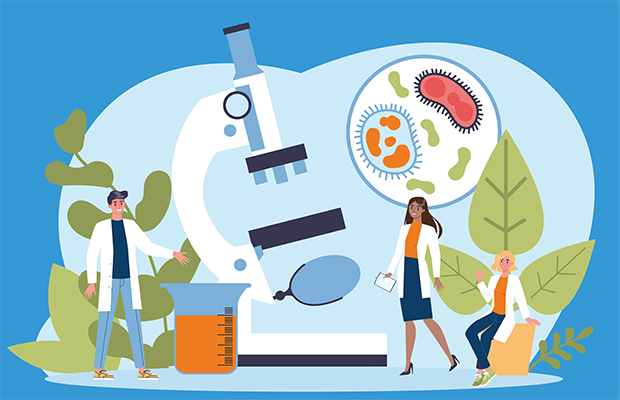Biology Q help
Okay i don't know how to answer this question:
Explain how its possible to have so many different types of biological molecules from a limited amount of monomers.
I've put this, but don't think its correct:
It’s possible to have so many different types of biological molecules from a limited amount of monomers as monomers can form long chains to form a polymer. For instance, fatty acids (monomer/monosaccaride) can form a Polymer to produce Triglycerides (Carbohydrate). Also, monomers can break and form bonds via condensation reaction and hydrolysis.
(as Glucose is a type of Carbohydrate) as monomers can form long chains
Explain how its possible to have so many different types of biological molecules from a limited amount of monomers.
I've put this, but don't think its correct:
It’s possible to have so many different types of biological molecules from a limited amount of monomers as monomers can form long chains to form a polymer. For instance, fatty acids (monomer/monosaccaride) can form a Polymer to produce Triglycerides (Carbohydrate). Also, monomers can break and form bonds via condensation reaction and hydrolysis.
(as Glucose is a type of Carbohydrate) as monomers can form long chains
anyone?
Original post by Uz25
Okay i don't know how to answer this question:
Explain how its possible to have so many different types of biological molecules from a limited amount of monomers.
I've put this, but don't think its correct:
It’s possible to have so many different types of biological molecules from a limited amount of monomers as monomers can form long chains to form a polymer. For instance, fatty acids (monomer/monosaccaride) can form a Polymer to produce Triglycerides (Carbohydrate). Also, monomers can break and form bonds via condensation reaction and hydrolysis.
(as Glucose is a type of Carbohydrate) as monomers can form long chains
Explain how its possible to have so many different types of biological molecules from a limited amount of monomers.
I've put this, but don't think its correct:
It’s possible to have so many different types of biological molecules from a limited amount of monomers as monomers can form long chains to form a polymer. For instance, fatty acids (monomer/monosaccaride) can form a Polymer to produce Triglycerides (Carbohydrate). Also, monomers can break and form bonds via condensation reaction and hydrolysis.
(as Glucose is a type of Carbohydrate) as monomers can form long chains
You're answer is fairly correct but you also have to say that it is due to hydrogen bonds and covalent bonds forming between them as well as oppositely charged groups.. Also the bond that formed from two monomers. For example ester bond in lipids. Lastly look at their properties this will give you the marks 😊
Posted from TSR Mobile
Original post by Simple_student
You're answer is fairly correct but you also have to say that it is due to hydrogen bonds and covalent bonds forming between them as well as oppositely charged groups.. Also the bond that formed from two monomers. For example ester bond in lipids. Lastly look at their properties this will give you the marks 😊
Posted from TSR Mobile
Posted from TSR Mobile
Thanks. Basically we did an paper chromatography experiment and have an assignment in it. The q is kinda related to what I said but the teacher gave us an example like e.g. why can u get cellulose, phospholipids. E.t.c. from a protein
Original post by Uz25
Thanks. Basically we did an paper chromatography experiment and have an assignment in it. The q is kinda related to what I said but the teacher gave us an example like e.g. why can u get cellulose, phospholipids. E.t.c. from a protein
Yeah.. And I think proteins isn't a monomer of carbs and also don't have alpha and beta glucose .. You gotta remember that protein has 4 different structures and it's for metabolic roles in the body... And cellulose is insoluble in water so it's beneficial for structural roles 😊
Posted from TSR Mobile
Quick Reply
Related discussions
- Biology maths question
- Grade Growth Chronicles | From C's to A's (23-24)
- Help me pick my 5 uni options - marine biology
- Failed year 12
- Help urgent biology q ‼️ 🧪
- A level biology AQA
- Can someone help with these Mathsy/CR questions pls??
- Entrance exam
- Hardy Weinberg question in A level biology please help
- how do you write a level biology flashcards?
- No college or sixth form found
- Biology enzymes question
- HELP!! what does a secondary amide hydrolyze to?
- Why can I never interpret what the a-level biology exam questions are asking me?
- A level revision advice needed please 🙏
- Help! Biology
- BBO 2023 solutions
- Help biology
- Help biology
- Why are some mitochondria different shapes (e.g circular)
Latest
Last reply 1 minute ago
Official UCL Offer Holders Thread for 2024 entryPosted 2 minutes ago
CURRENT STUDENTS which residency halls are the best @ uni of southamptonLast reply 3 minutes ago
Official London School of Economics and Political Science 2024 Applicant ThreadLast reply 4 minutes ago
SMPCETs, Scottish STP, Clinical Scientist Trainee applicants for 2024Last reply 4 minutes ago
Accenture Degree Apprenticeship 2024Last reply 6 minutes ago
AQA A Level French Paper 3 (Speaking/IRP) 7652/3 - 2024 [Exam Chat]Last reply 8 minutes ago
Official University of St Andrews Applicant Thread for 2024Last reply 9 minutes ago
Official Politics and/or International Relations Applicants Thread 2024Last reply 10 minutes ago
Official Dental Hygiene and Therapy (Oral Health Science) 2024 Entry ThreadDentistry
2863
Last reply 11 minutes ago
Official: University of Manchester A106 2024 Entry ApplicantsMedical Schools
1290
Last reply 11 minutes ago
BAE systems degree apprenticeships September 2024Last reply 13 minutes ago
Please Help! Seek input on University selection for FinanceLast reply 14 minutes ago
Apprenticeships in medicineLast reply 14 minutes ago
Economics and Economic History 2024 ThreadLast reply 17 minutes ago
Edexcel A-level French Paper 3, IRP/Speaking (9FR0 03) - 2024 [Exam Chat]



